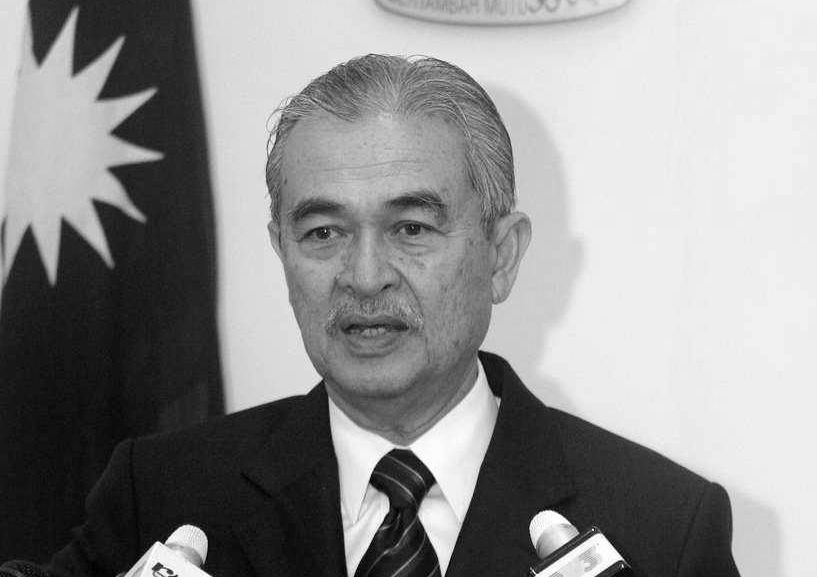
PETALING JAYA: Malaysia’s fifth Prime Minister, Tun Abdullah Ahmad Badawi (pic), hailed from a distinguished lineage of religious scholars in Penang.
He was renowned for championing the concept of Islam Hadhari, which is a modern, humanist, and scientific interpretation of Islam.
Affectionately known as Pak Lah, Abdullah was born on Nov 26, 1939, in Kampung Perlis, Bayan Lepas, on Penang island.
The eldest of four siblings, he was the son of Ahmad Abdullah Fahim and his wife, Datuk Khailan Hassan, according to his official site.
Pak Lah received his early education at Sekolah Kebangsaan Permatang Bertam, Kepala Batas, from 1947 to 1950 up to Standard Four before continuing his education at Bukit Mertajam High School.
He then did his Form Six at Penang Methodist Boys’ School before graduating with a Bachelor of Arts (Honours) in Islamic Studies from Universiti Malaya in 1964.
In 1957, when he was in Form Five, he was appointed president of the Penang and Province Wellesley Malay Students’ Association.
In 1962, he was elected president of the Peninsular Malay Students’ Federation.
Abdullah was married to the late Tun Endon Mahmood, who died in 2005. He later married Tun Jeanne Abdullah.
Pak Lah joined Umno in 1965, resigning from government service in 1978 to pursue full-time politics.
He was elected as Kepala Batas MP in 1978, a seat he held until 2013.
He became a member of Umno’s supreme council in 1981 and was then elected as party vice-president multiple times in 1984, 1987, and 1990, and was re-elected to the same position in 1996.
In the 1999 general election, he won the Kepala Batas seat with a majority of 11,175 votes, defeating PAS candidate Khalid Rasid.
At the Umno general assembly in 2000, he was elected as the party’s deputy president for the 2000-2003 term.
Abdullah succeeded Tun Dr Mahathir Mohamad as Prime Minister on Oct 31, 2003, and served until April 2, 2009, when then-deputy Prime Minister Datuk Seri Najib Razak took over.
In his four-decade political career, he was known to be a moderate, reform-minded leader and a strong advocate for civilisational Islam and anti-corruption reforms.
After stepping down as Prime Minister, Abdullah remained actively involved with various civil society organisations.
He was chairman of the Institute of Islamic Understanding Malaysia, established to promote a true understanding of Islam.
He also served as patron of the International Institute of Advanced Islamic Studies, which he founded in 2009, serving as a key platform for students from Arabic and religious education backgrounds to pursue higher studies.
Abdullah was also the founding patron of the World Islamic Economic Forum, an initiative aimed at enhancing economic cooperation among Muslim countries and exploring opportunities for greater collaboration within the Islamic world.
He also played a significant role as a government adviser, notably on Malaysia’s economic development corridors and as an adviser to Malaysia Airlines.
Abdullah was also a member of the Inter Action Council, a board member of the Boao Forum for Asia, and chairman of the Commonwealth Eminent Persons Group from 2010 to 2011.
He was also one of the founding members of the Asian Peace and Reconciliation Council.

